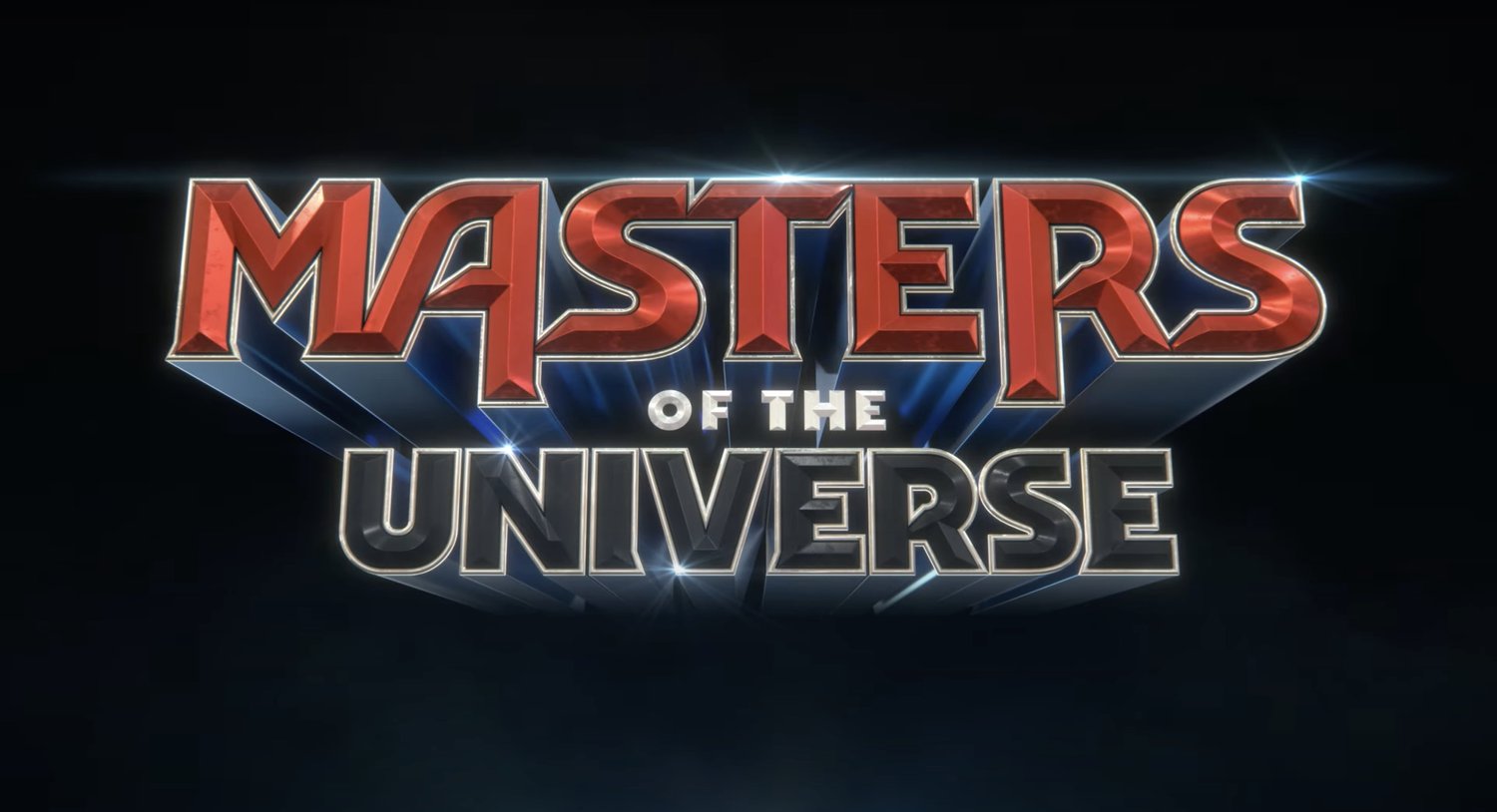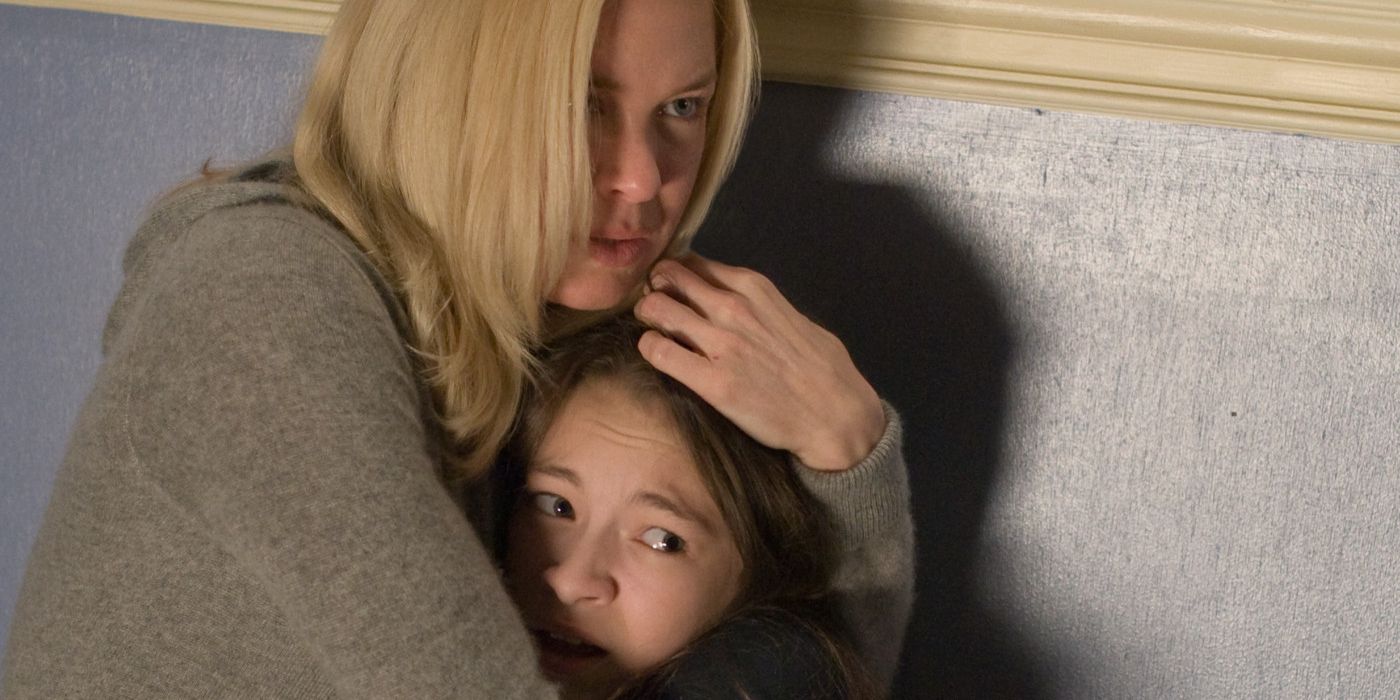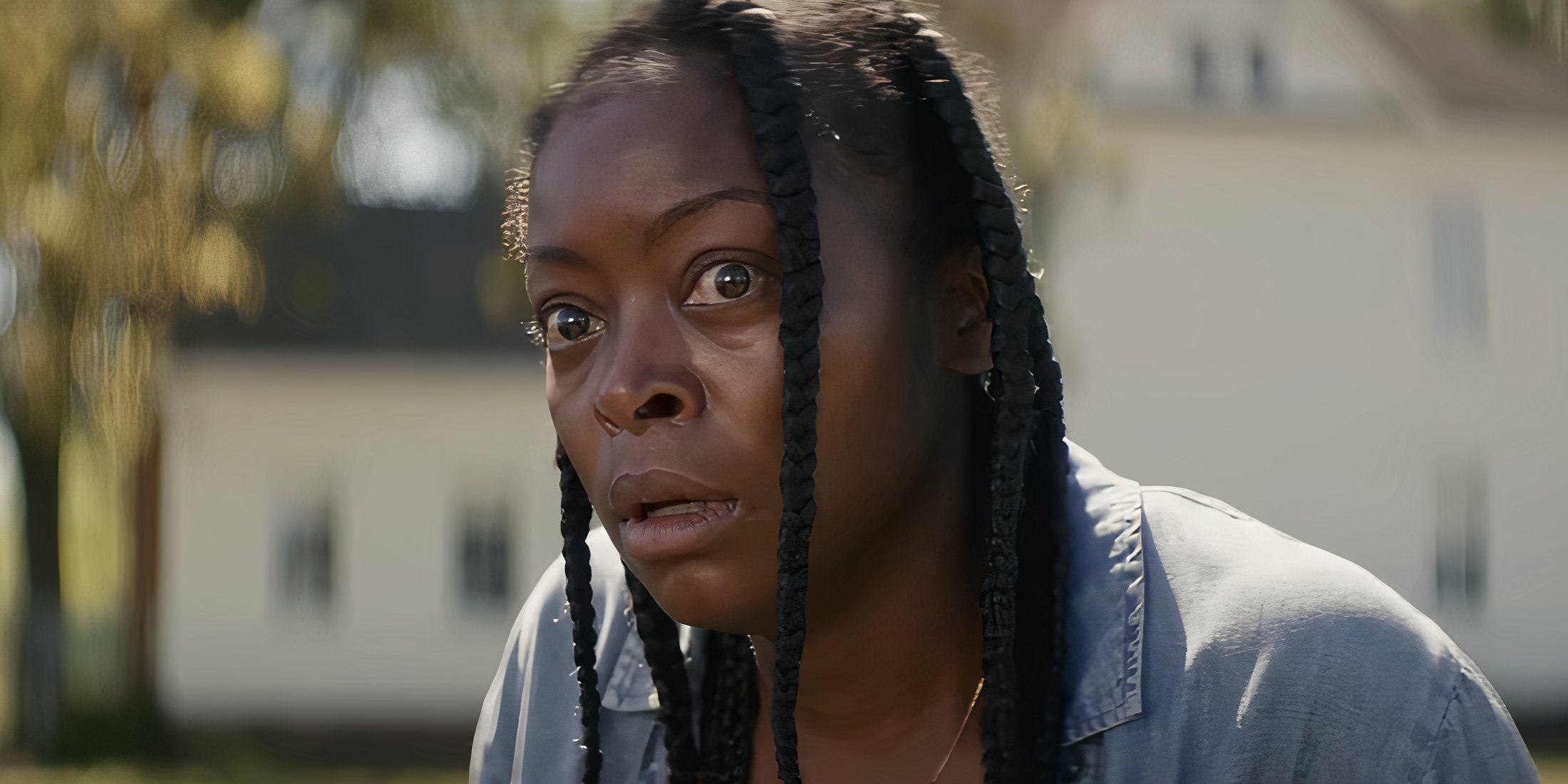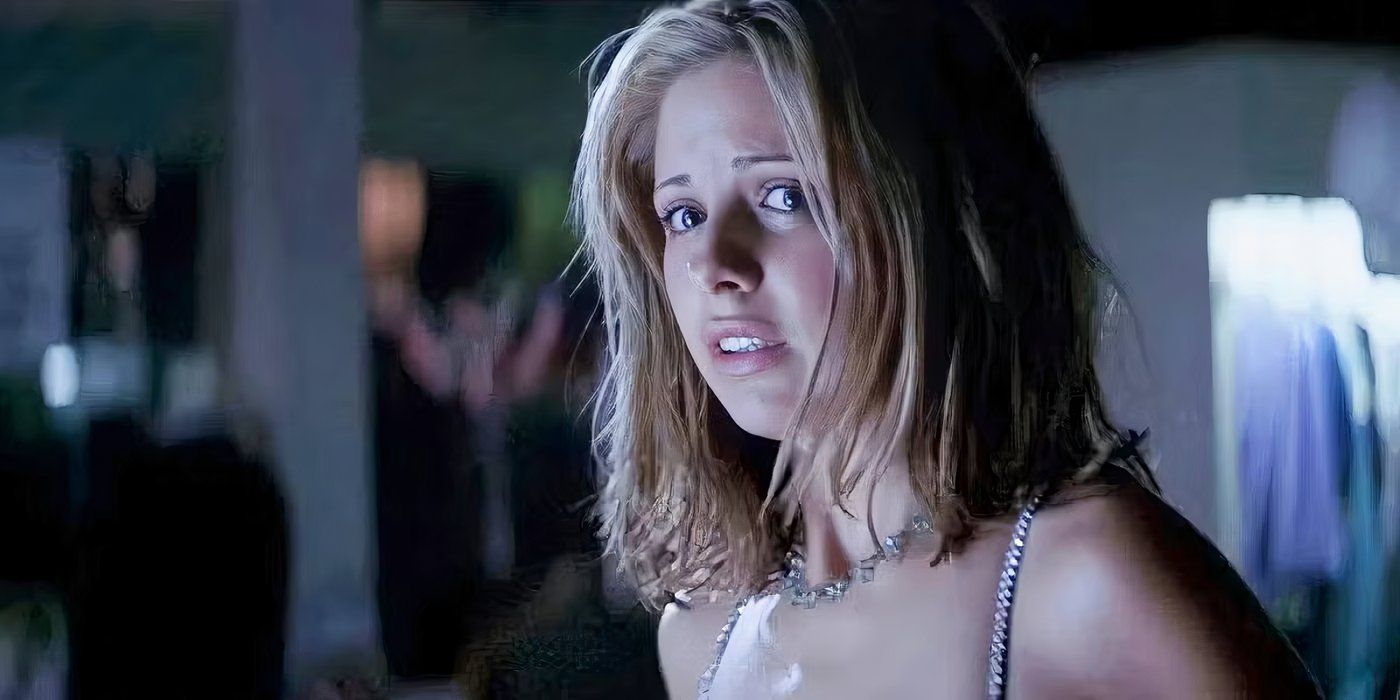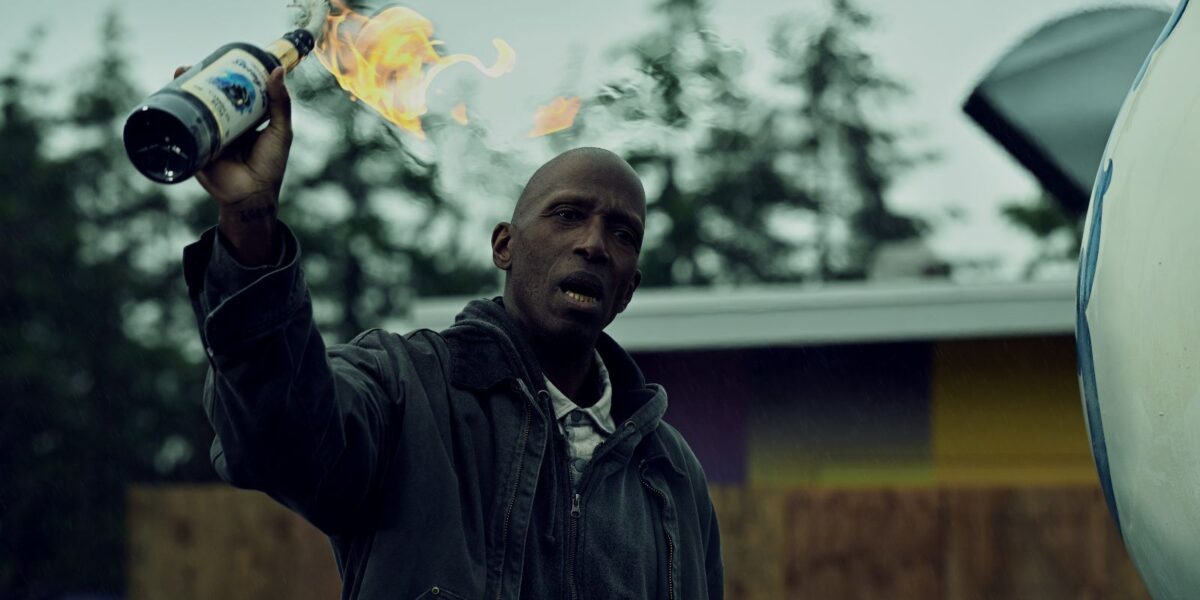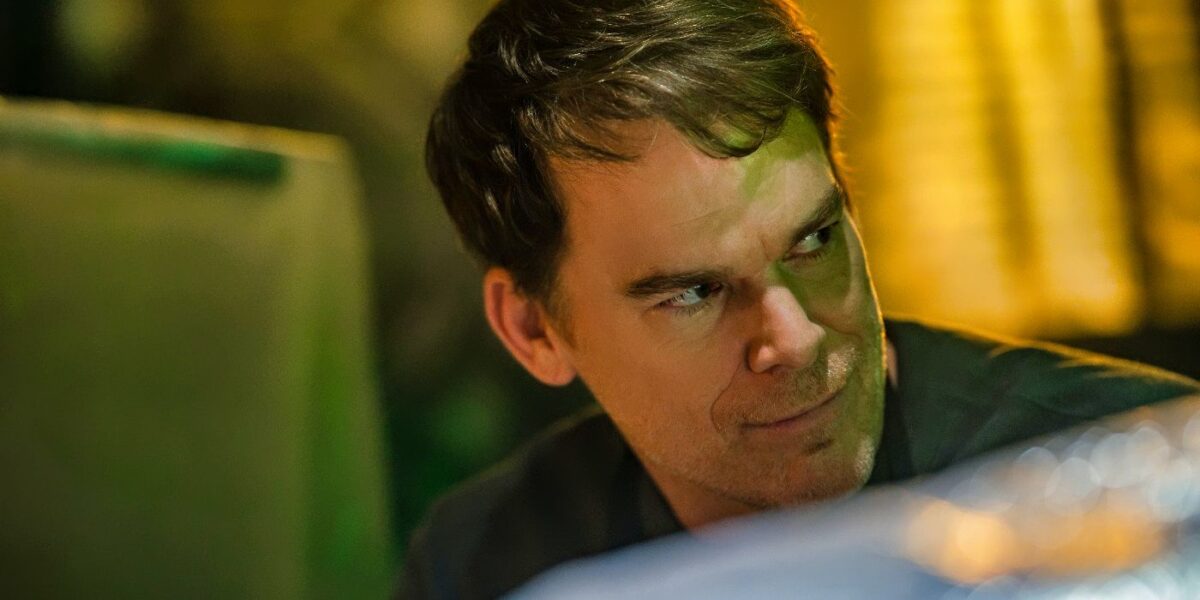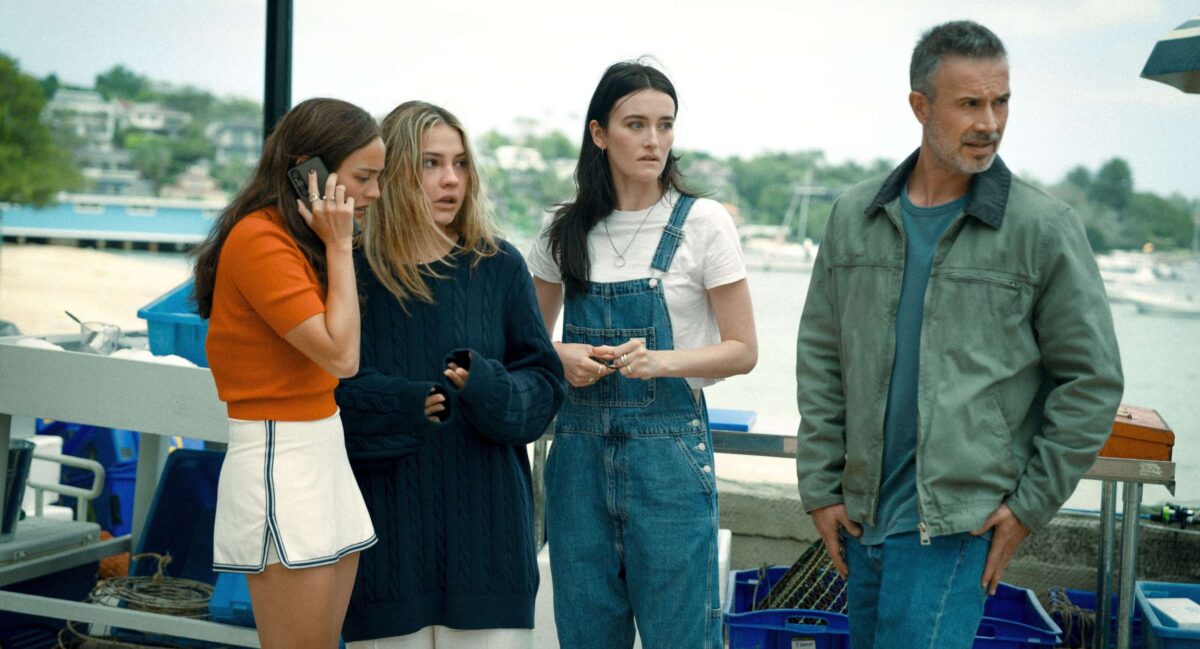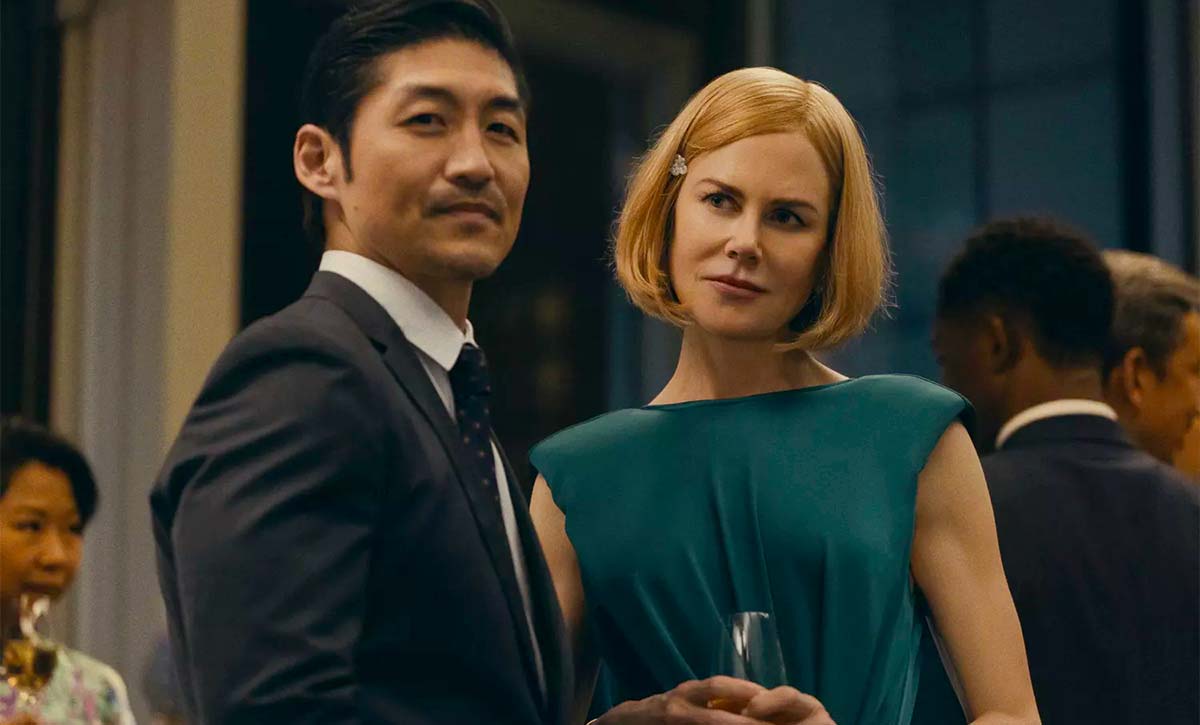
Lulu Wang’s Moody, Layered Meditation On Loneliness, Grief, Privilege & Womanhood
Jan 26, 2024
Director Lulu Wang’s sprawling “Expats” is long and lingering with evocative atmospherics. Complex and observant, mounted on an enormous canvas, the limited series is deeply ambitious and takes on a lot, arguably too much. Exploring ideas of motherhood, womanhood, loneliness, and grief, interrogating privilege, and the alienating experience of life as an immigrant from multiple perspectives, that’s not all. “Expats” also examines how people, specifically women, move past, through, and beyond tragedy, if they can at all. It’s also about the pains of being human, a tall order, indeed.
Like her breakthrough film, “The Farewell,” her first series also examines the complications of family, culture, and geographic dislocation, too. But this time, it does feel like six ‘Farewells’ in total, the mass of it lasting over six hours (and though everyone hates the TV-as-film descriptor, it’s apt here). Despite the difficulties of crafting such an intricate endeavor—a little unwieldy, and it sometimes shows— “Expats” is worth sticking through and absorbing. It merits watching your perspective and empathy for all the characters evolve as you’re immersed in the shifting layers of its moody reflection. The story evolves, too. Based on the 2016 book “The Expatriates” by Janice Y.K. Lee, “The Expats” tells an interconnected tale that’s seemingly about grief, weaving the narrative of three expatriate women living in Hong Kong, all unmoored in some regards, displaced from their own lives while living them, all existing in the aftermath of a tragedy.
READ MORE: The 70 Most Anticipated TV Shows & Mini-Series Of 2024
Nicole Kidman’s Magaret is at the center of this heartbreak. The mother of three, an architect turned housewife who gave up her career in favor of her husband’s prosperous job halfway across the world, her family suffers a shattering loss after the loss of her youngest, Gus. Living in a daze, haunted by this devastation, she teeters on the brink of emotional collapse, but at least has her husband Clarke (Brian Tee) and a life of luxury to cocoon her from her anguish. Her neighbor and friend, Hilary Starr (Sarayu Blue), also lives in the same ivory tower of privilege, surrounded by domestic help who are almost family, but not quite, and never actually in the end. Hilary’s story is almost inverted; she doesn’t want children—or is just what the paralysis of infertility issues yield?— and grapples with the burden of those expectations from her overbearing mother (an excellent Sudha Bhuchar) and from her philandering husband, David (Jack Huston), who struggles with alcoholism. The third of these women is Mercy (Ji-young Yoo), much younger than the other two; she’s a rebellious but lonely 24-year-old American-Korean girl who recently graduated from Columbia, in search of a “fresh start” but seemingly unclear of who she is or what her purpose is. The tragedy that defines binds and defines them also erodes at her tentative sense of identity.
The way the three women are connected actually feels too manufactured—like a novel’s conceit—but the contrivance is straight from the book, so it’s at least not on Wang and her all-woman writer’s room. “Expats” unfurls like the lurching memory of someone struggling to live through ongoing trauma. It begins a year into the disappearance of Kidman’s character’s child, and a triggering moment of happenstance makes the story rewind for episode two.
It’s here where we learn Mercy, vying for the job of au pair after running into Margaret randomly on a luxury cruise, loses Gus at a Hong Kong night market in what is essentially an audition dinner. Briefly distracted by her phone, Mercy, once holding the little boy’s hand, has vanished. And soon, Margaret breaks into hysterics as her world is torn asunder. Meanwhile, Hilary’s husband, David, lying about his whereabouts to the police because he’s been drinking, briefly becomes a suspect. This revelation irrevocably changes her relationship with Hilary, and “Expats” essentially becomes an aftermath drama about this fateful night when a little boy goes missing, and all the lives are never the same again.
Playing to Wang’s strengths, “Expats” is at its best when it considers its characters like lost souls wandering the overcrowded cityscapes of bustling Hong Kong, exiled emotionally, lonesome, isolated, and desperate to connect with someone. A keen observer of women’s inner lives that plays well with contemplative, non-linear editing, Wang excels when “Expats” allows itself to be emotionally cinematic, which all the quieter moments allow. As the tragedy is examined through three perspectives, Wang effortlessly weaves memories together to tell something affecting and largely engrossing.
Featuring a plaintive, melancholy score by Alex Weston, Anna Franquesa-Solano’s crisp, low-lit, moody photography also captures the experiential, existential neon moodiness of Wong Kar-Wai and his old cinematographer Christopher Doyle (one background conversation even explicitly references the two; a bit unnecessary, but subtle enough that most non-cinephiles won’t even notice).
But as the plot expands and “Expats” has to contend with the branching threads of its three-headed narrative, its expressive vibrancy starts to become a little sluggish (and it’s no coincidence that the three best episodes are the ones that Wang wrote on her own).
Episode five, “Central,” a Wang creation that is 95 minutes long and certainly plays out like a little indie movie—and premiered at TIFF like this—is both fascinating and problematic. This is Wang’s moment to say we must consider the people that live at the feet of these towers. We cannot just contemplate these lives of affluence, wealth, and privilege without considering the lives of all the women and domestic help around them that make their lives run so smoothly— affording them the luxury of time-outs from sadness, introspection, and self-indulgence while they pick up after them.
Margaret’s domestic helper Essie (Ruby Ruiz), Hilary’s housekeeper Puri (Amelyn Pardenilla; both excellent), and a few other characters on the story’s fringes get their due and their own episode. It’s bold, daring, and sharply cross-examines their complex roles as domestic servants, how these lines are so often blurred, and the manipulative exploitation that can occur when you’re emotionally involved with those you work for (essentially: you’re family and by the way, please serve us, we’re starving).
Essie, for one, has a thorny relationship with Margaret because her children essentially prefer her, and Margaret resents this. Like many helpers in this position, she’s like a grandmother or aunt, but the truth of it is she’s not. Puri has a magical night with Hilary— sad and lonely, missing her husband— where she is seen, considered, and suddenly treated as a friend. But when Hilary wakes up from her hangover the next day—clearly the evening of sudden generosity of spirit being the byproduct of alcohol— the power dynamics snap back to attention like a rude awakening. Ultimately, they’re the help, and their employers tend to regard them only when their lives are in chaos, or they’re feeling self-pity.
This episode is well-written, well-intentioned, and deeply unique, but there’s no arguing that it’s a sudden detour away from the main narrative and, thus, self-indulgent as it doesn’t push the story forward. Instead, it is a kind of intriguing pause, pivot, and tangent. But apart from underscoring the imbalance of power and how the lead characters are ensconced in wealth, hidden from the real struggles, it has another unfortunate byproduct: it shows the very characters the series has asked us to empathize with in a deeply unflattering light.
The episode underlines how these helpers have essentially put their own lives and own families on hold to tend to others, emphasizing the shitty, selfish behavior of their employers. And as great as episode five is on its own, it’s no wonder why this is the moment where “Expats” starts to diminish. Wang is audacious to attempt such a pivot in the would-be crucial and penultimate episode of the series, but one has to wonder what good it does the overall foundation of a story that’s asked us to sympathize with the plight of these women. There’s an argument to be made that this artistic flourish backfires on “Expats” as a whole (and the way it also gives space to some other characters in the narrative we’ve barely known in the story seems questionable).
At the same time, “Expats” doesn’t shy away from showing its characters’ messier and unlikable sides; this is life, after all, and rarely does anyone get away clean and unscathed. So, it’s a daring technique, but it’s also self-wounding, yet kudos to Wang for questioning her own protagonists too. Meanwhile, and not helping, The tumultuous tapestry of 2014 Hong Kong and the Umbrella Revolution protest that doesn’t really emerge into the story until episode five also seems like a dubious choice; the series takes on one more weighty subject and then arguably shortchanges it by not having the space to give it real value. Wang seems to want to cover it all, capture every shred of Hong Kong and its eclectic culture. And she does, but to what end ultimately?
Written by the original author, Janice Y. K. Lee, episode six, its finale, is its least effective too, perhaps further making the case that Wang should have had her imprimatur on the entire series instead of ending the entire affair on a questionable note (Lee seems to write things with a dull note of “female empowerment” in mind, which feels beneath the series, frankly).
Still, “Expats” is too initially engrossing to ignore, write off, or not recommend. It’s often fascinating even when seemingly overburdened by all the vast journeys its multi-narrative takes. Wang’s aspirations arguably overexert themselves, but does so with such grace, style, ambition, and cinematic empathy it leaves a lingering sensation of something hazy and dreamily memorable, not unlike the films of Wong Kar Wai (which seems to be one of her chief influences). Maybe it’s her “My Blueberry Nights,” one of the rare WKW films not adored by its cinephile disciples (though it fares better in the aggregate). Imperfect and flawed, much like the characters in “Expats,” similar to Wai’s emotionally intense picture of forlorn soul-searching, there’s still value in all the distinctively lush portraits of exiled personalities trying to find refuge from the storm of our wearying human experience. [B]
Publisher: Source link
The Fantastic Four: First Steps Review
The Fantastic Four: First Steps is the 37th theatrical release in Marvel Studios' billion-dollar franchise, the Marvel Cinematic Universe, and it's coming at a bit of a low point. Marvel has struggled in recent years to reach the heights of…
Jul 30, 2025
As Dave’s Dark Secrets Unravel, One Shocking Confrontation Will Have You on the Edge of Your Seat
Editor's note: The below recap contains spoilers for Smoke Episode 6. After two weeks of intense character work, Apple TV+'s crime drama Smoke has returned to the main investigation through arguably the most important episode thus far. "Manhood" sees Taron…
Jul 29, 2025
Dexter Crashes a Serial Killer Party, but Not Every Guest Survives the Night
Editor's note: The below recap contains spoilers for Dexter: Resurrection Episode 4. The first season of Dexter: Resurrection has been much better than anyone could have expected so far, with the series changing the setting by taking the action to…
Jul 29, 2025
I Know What You Did Last Summer Review: A Lifeless Revival
In the age of legacy sequels, where nostalgia-driven revivals attempt to cash in on the goodwill of yesteryear’s classics, I Know What You Did Last Summer (2025) arrives as the fourth installment in a once-iconic slasher franchise. Directed by Jennifer…
Jul 28, 2025

